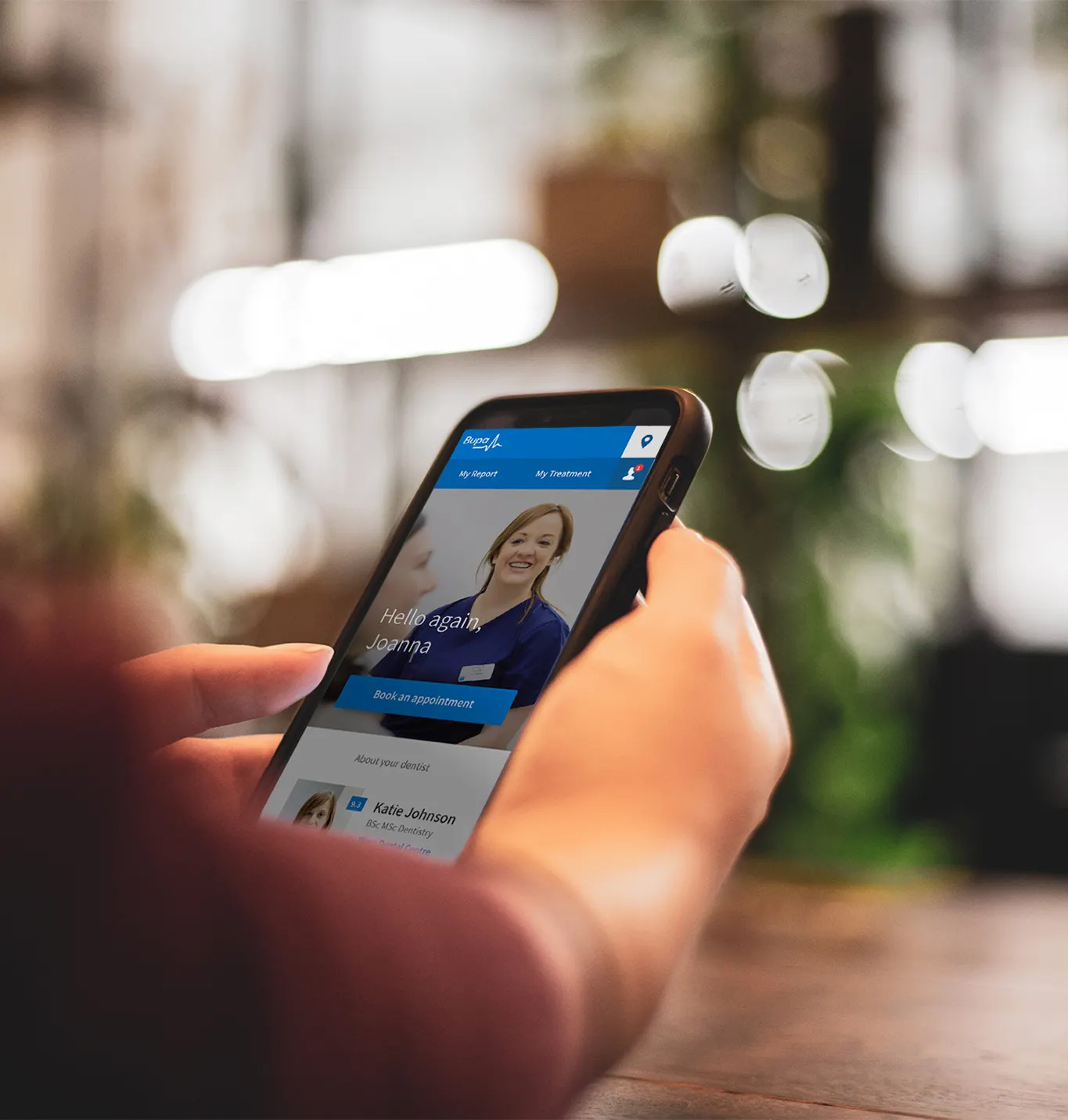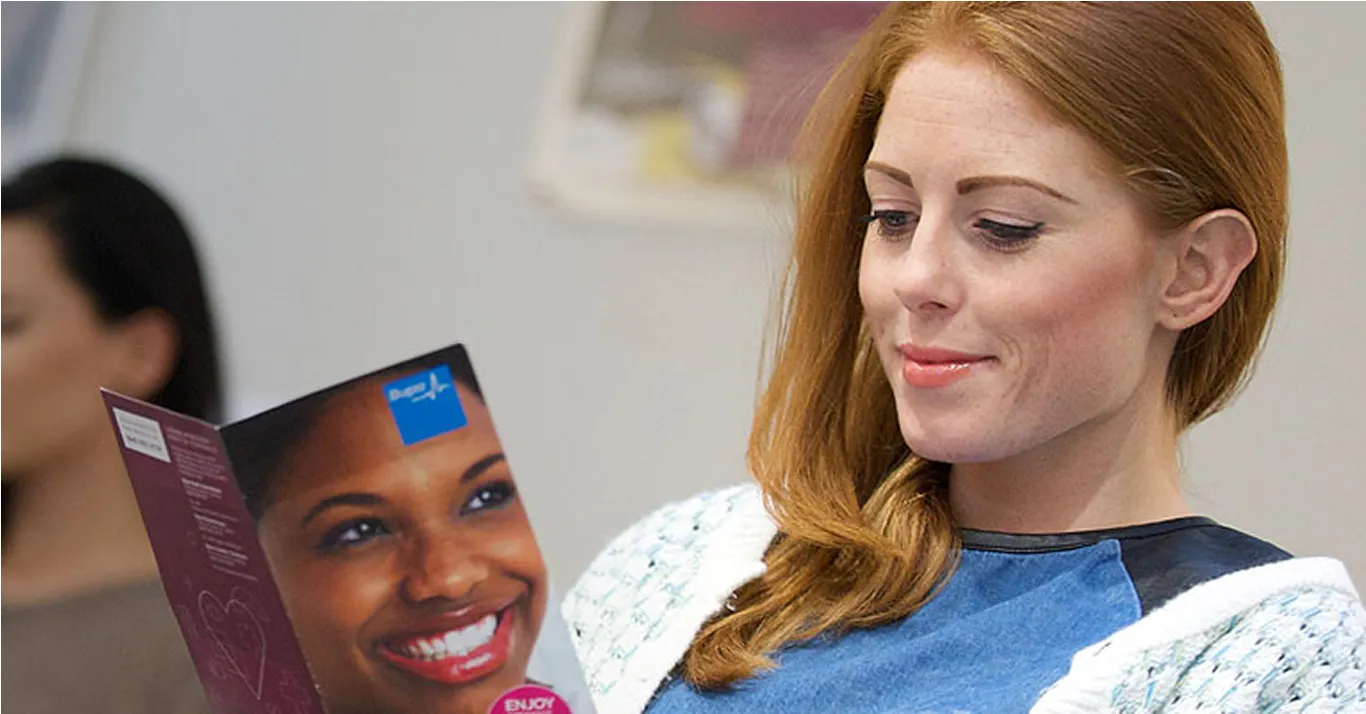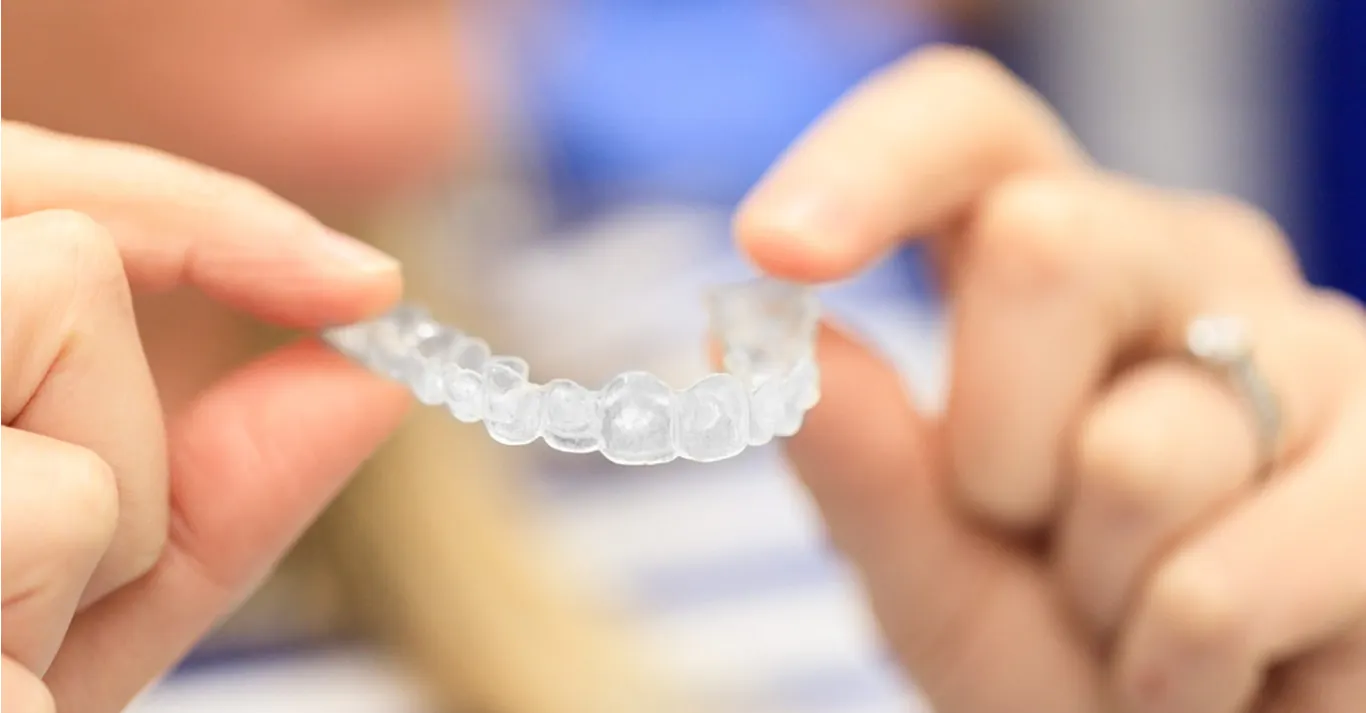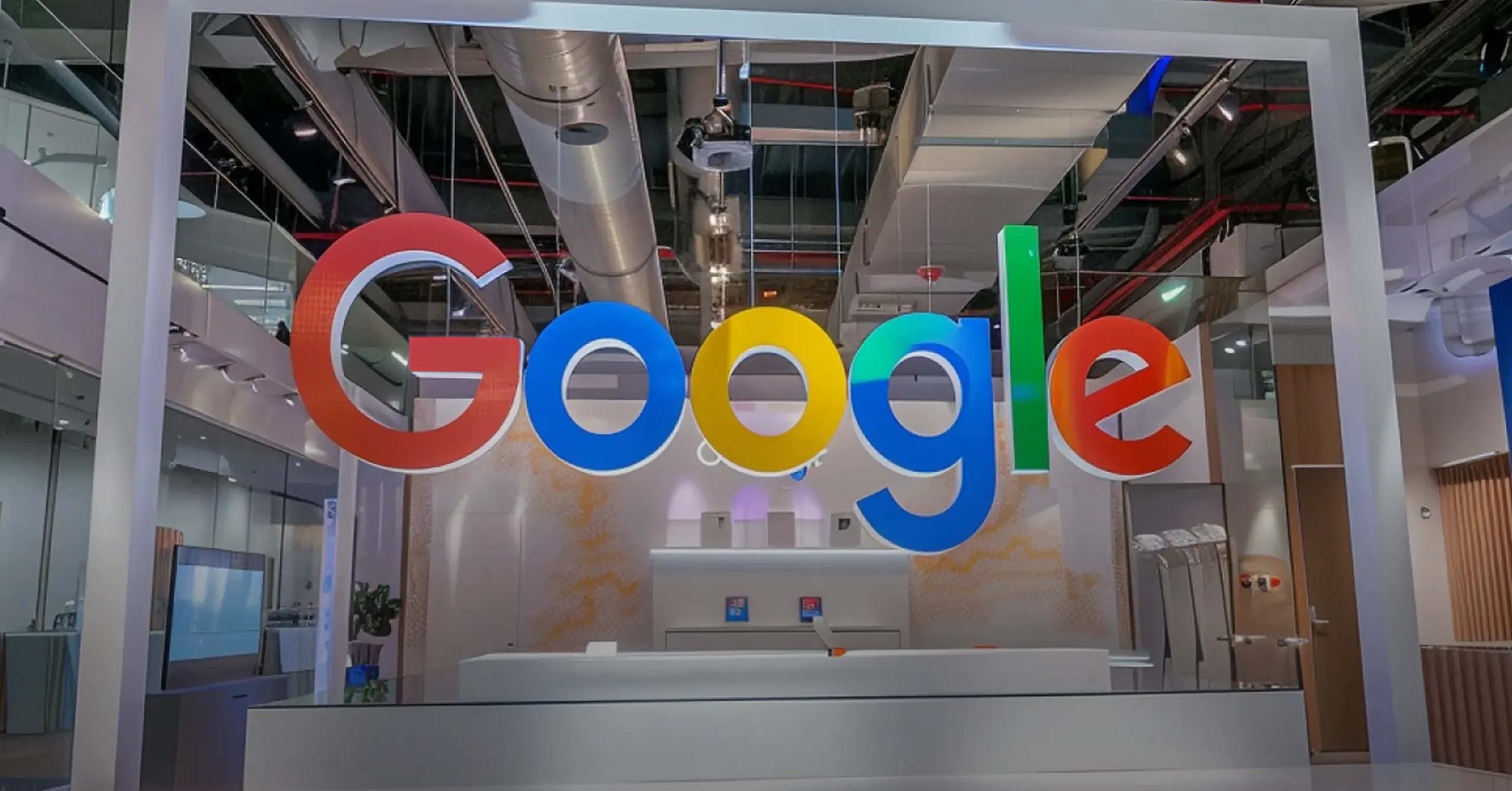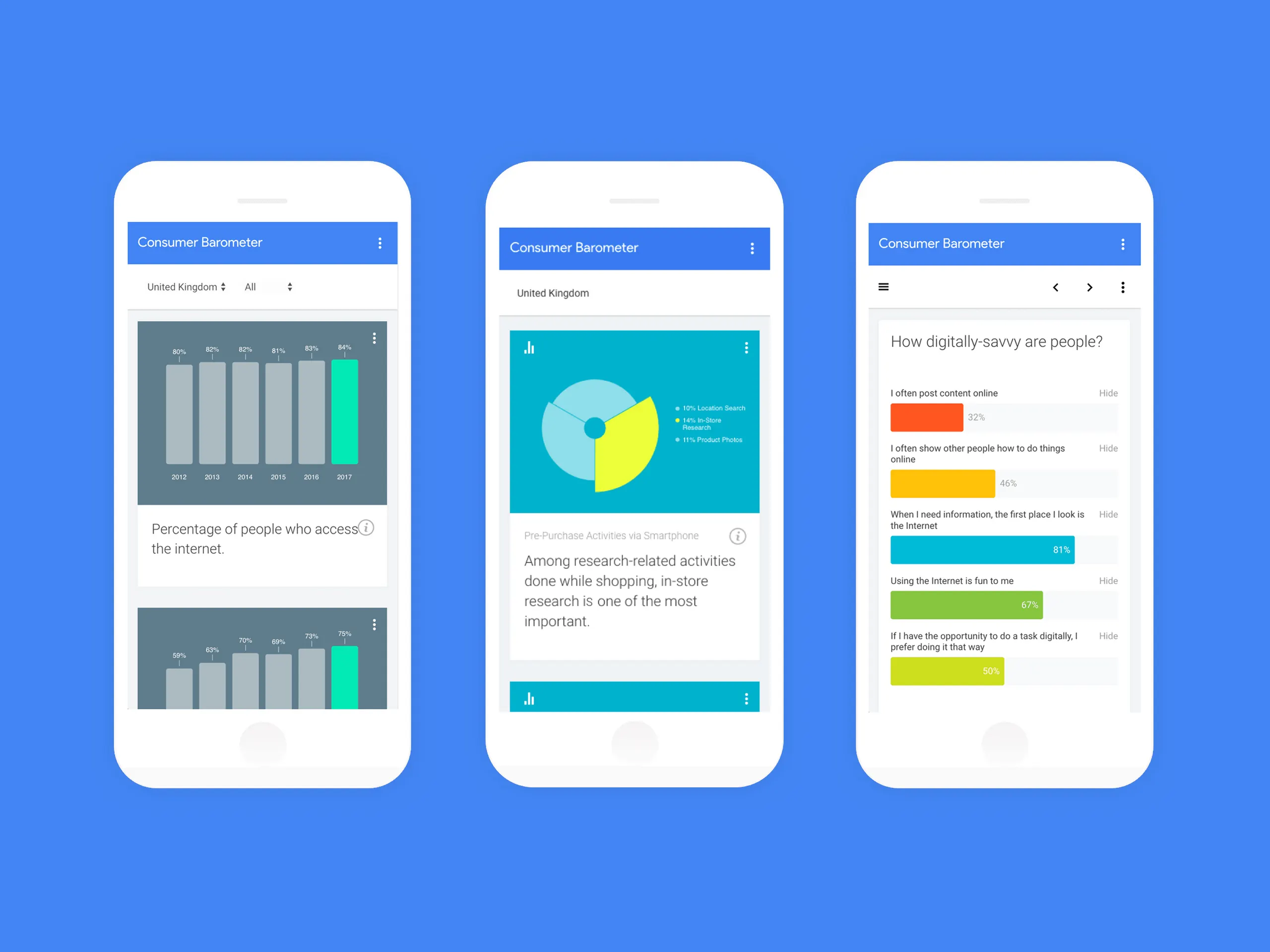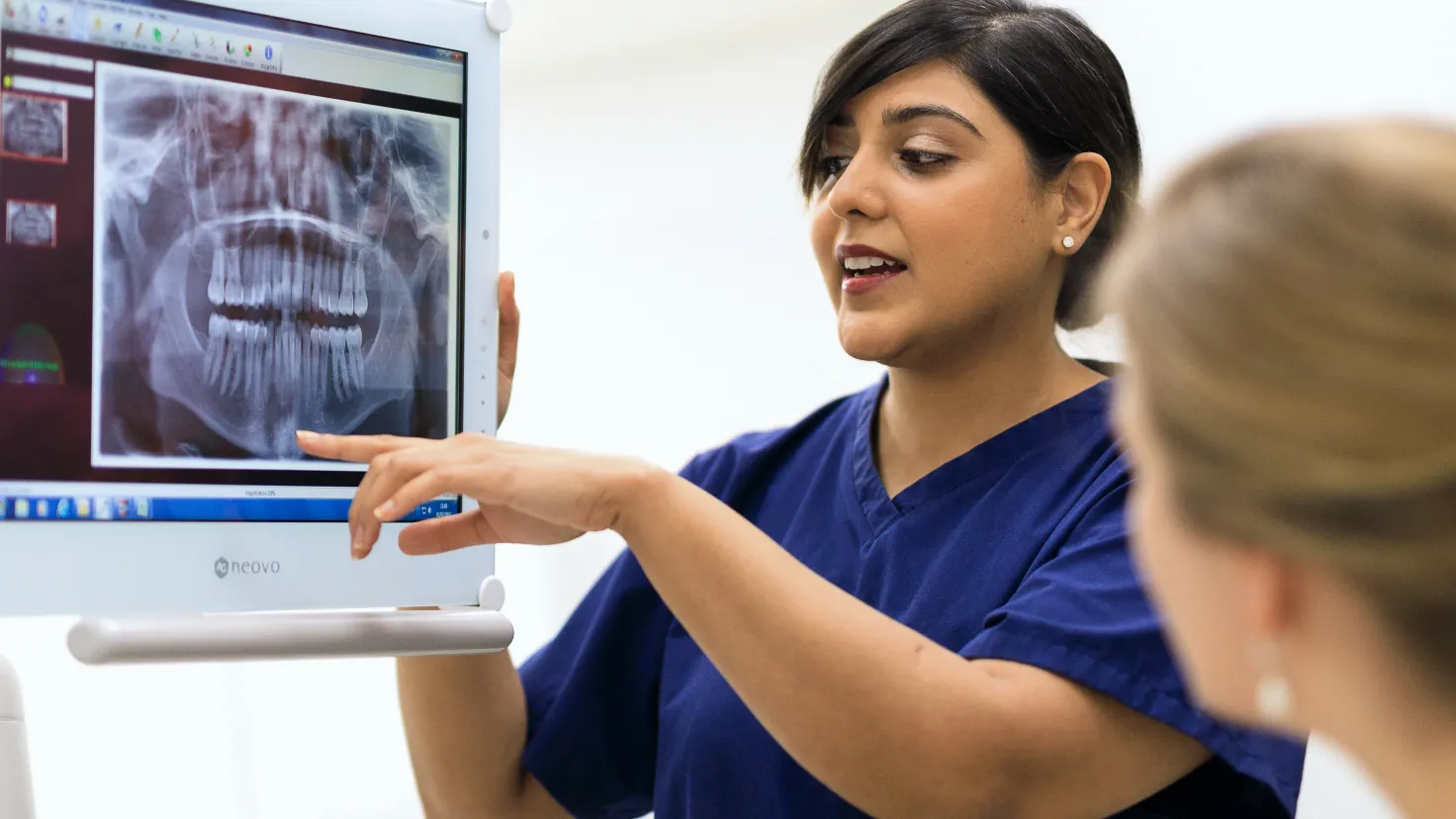
Leading the way in UK dental care
We delivered the roadmap for the digital transformation of Bupa’s newly acquired dental business. Data and processes were centralised to make growth and learning possible, and delivered both patients and dentists a new, easy to use CX based on their needs. This combination is giving Bupa the potential to radically change how patients receive dental care.
Outcomes
- Stakeholder alignment
- Opportunity selection
- Value proposition & testing
- Operational modelling
- Ethnographic research
- Prototyping
- Quantitative analysis
- Customer experience
- Technical DD
- Commercial acumen
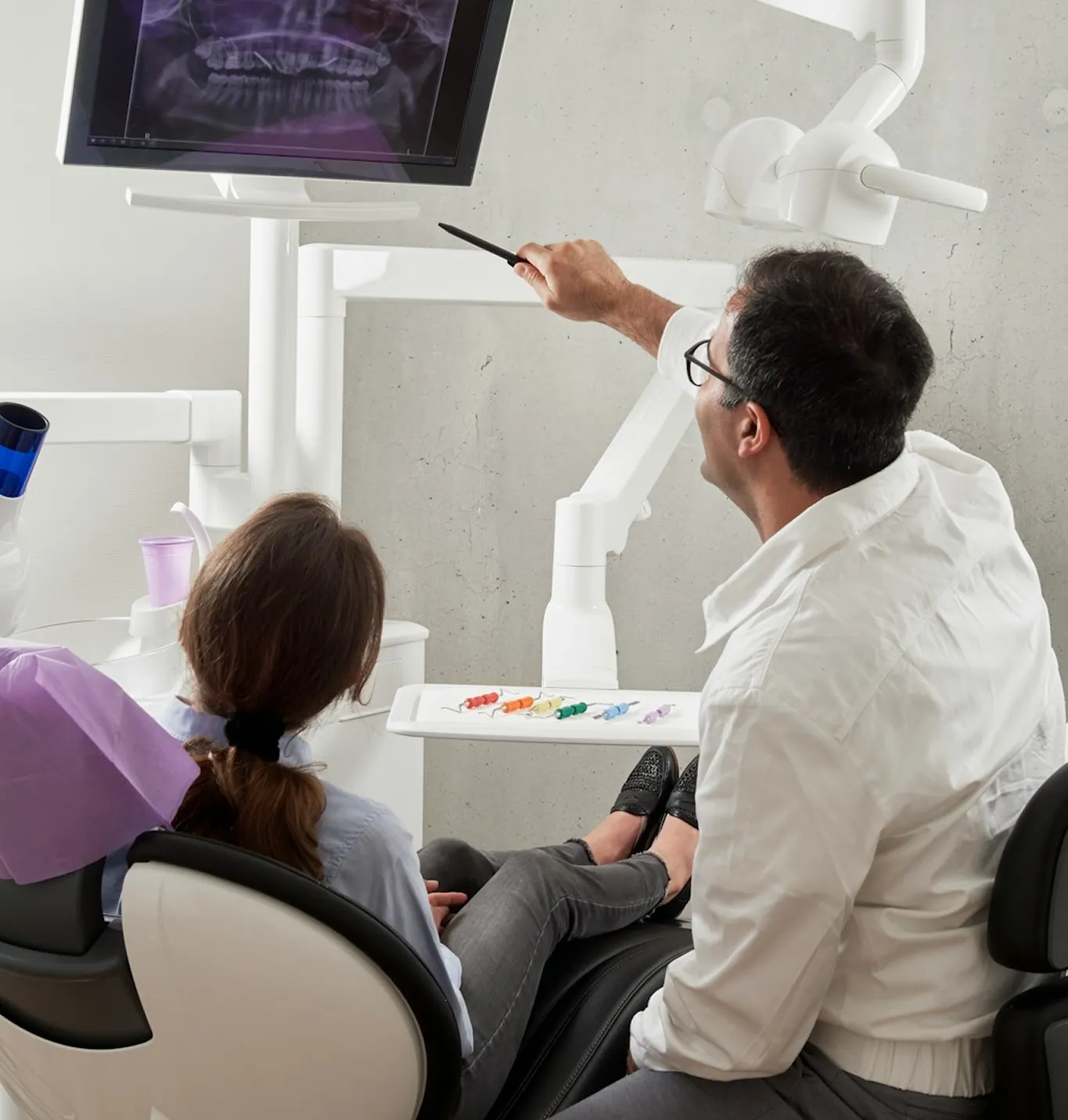
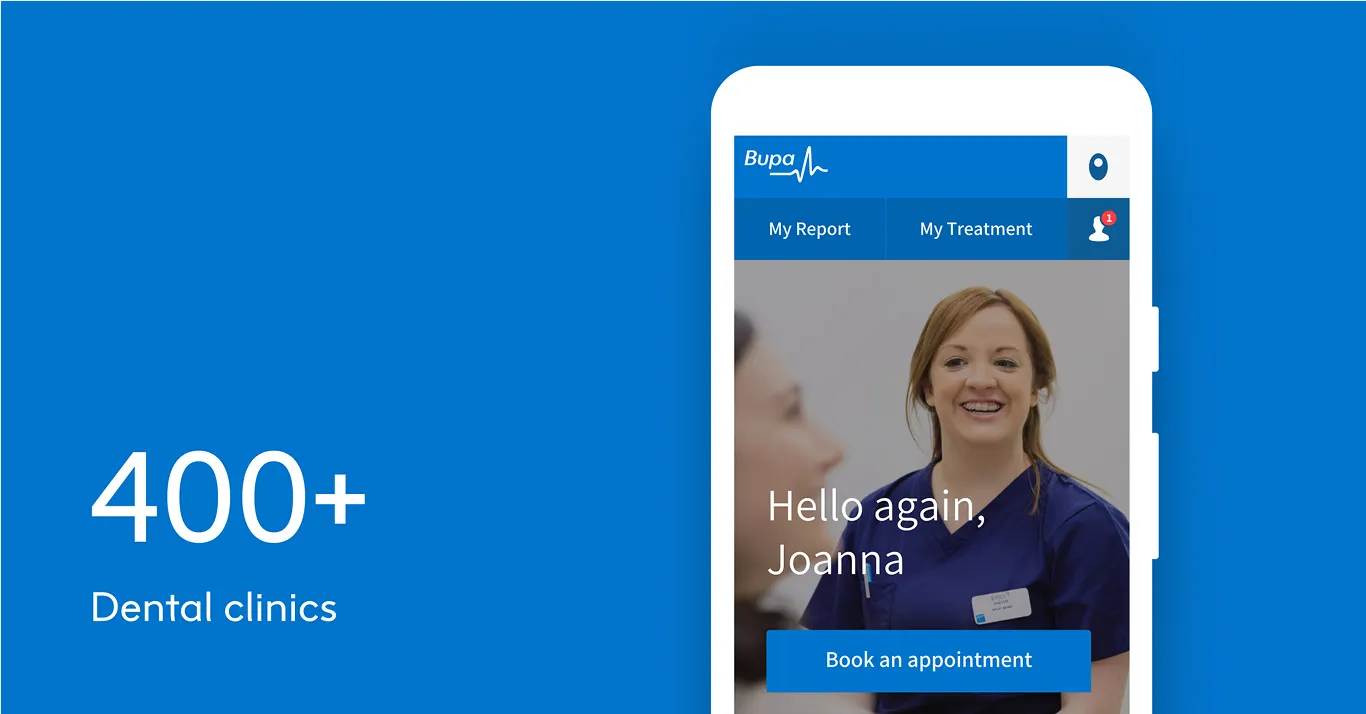
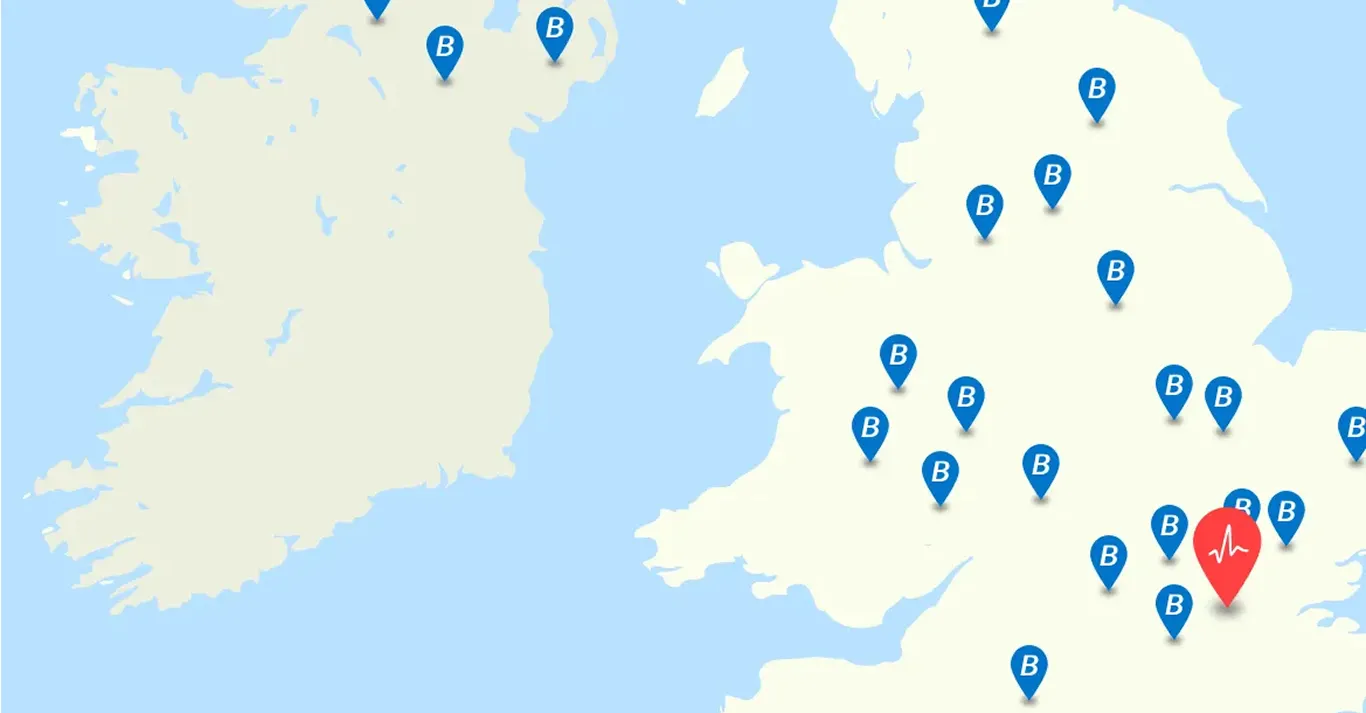
- The brief
- Becoming the market leader through
best-in-class CX
Bupa had recently acquired Oasis Dental Care — the UK's leading private dental provider — from European private equity firm Bridgepoint for £835 million, as part of a plan to become the market leader in UK dental care.
In their acquisition they would take on a business with over 2m dental patients and more than 400 clinics. They would need to modernise and improve the service, both for dentists and patients, as part of their strategy to offer customers high quality dental services across the UK.
This would mean undertaking a deep understanding of the business, and the wider dental landscape, rethinking both the front- and back-end technology stack, and centralising data to make both superior CX, real learning, and future business growth possible.
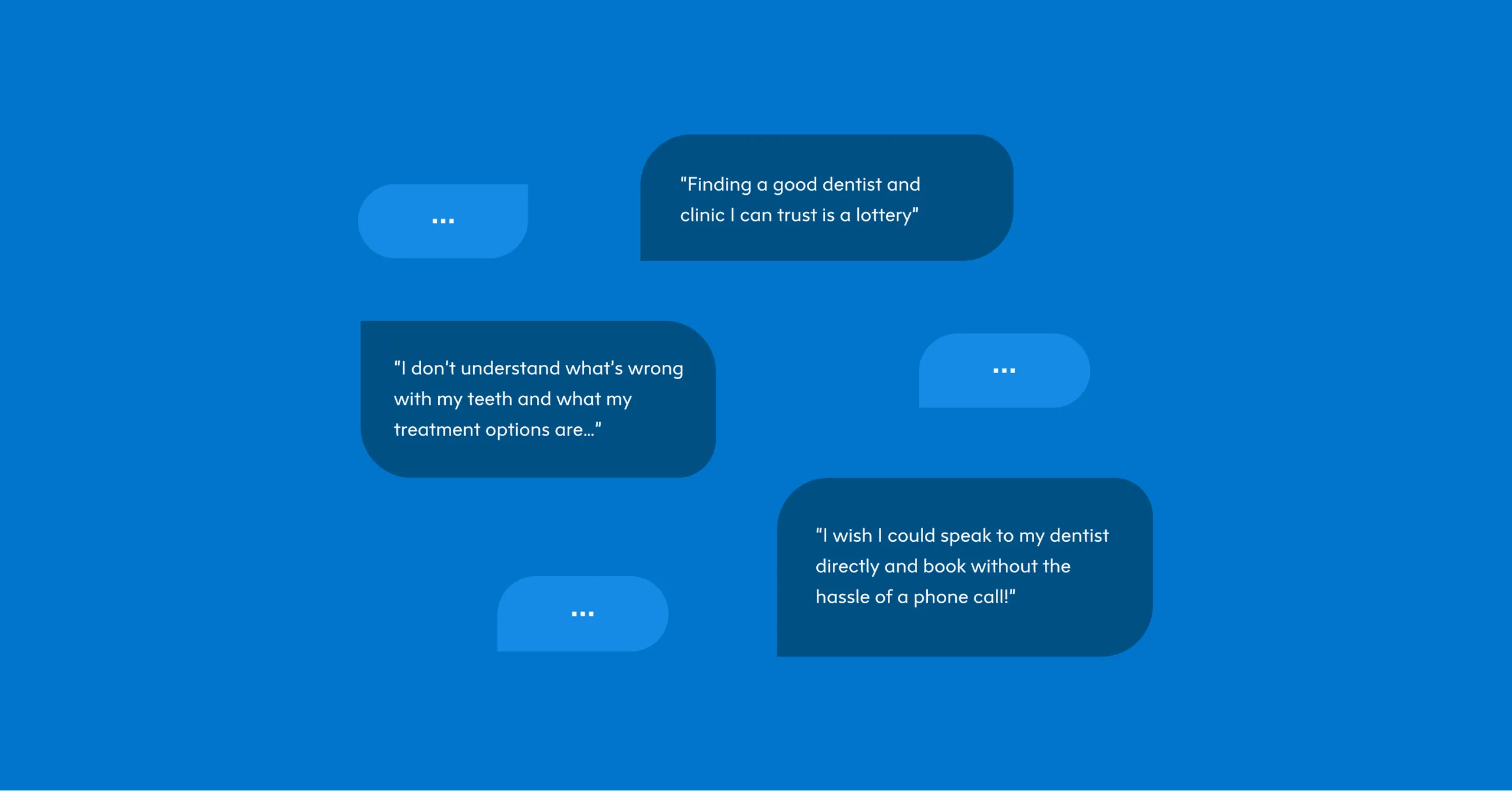
- Background
- Delivering customer-centricity at scale
Bupa’s acquisition of Oasis is typical of a wider trend of consolidation taking place in the dental industry where increasingly group practices (including dental chains) proliferate while single-owner practices are expected to decline, with necessary investments in new technology further raising the barrier to opening new practices.
Bupa wanted to be able to lead on the kind of digital innovation that larger enterprises sometimes struggle to deliver, while maintaining its position as a trusted and well-known brand in the UK. They brought in Elsewhen to define and validate new opportunities made possible by the acquisition of Oasis Dental.
The goals of the project were to enable new revenue streams and/or cost savings through the introduction of customer-centric digital technology and make the most of the UK-wide network to share knowledge and training, with the hope of raising standards across dentistry.
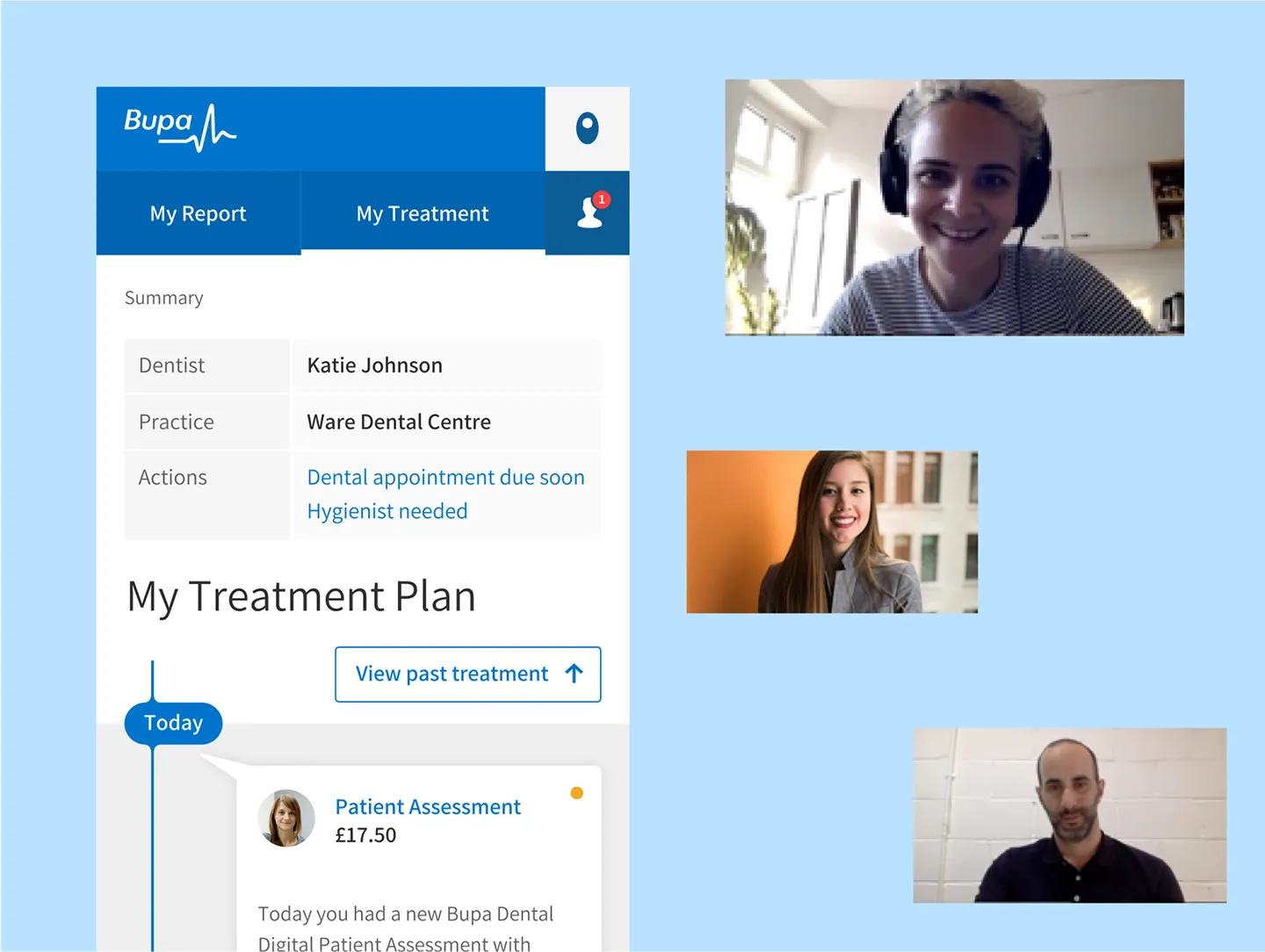
- Market context
- Dentistry is a growing industry, with new customer expectations
The goals of raising standards and meeting customer expectations can be best understood when considered in the wider context of the industry. The UK's dental market was estimated at £7.1bn at the time of the acquisition, with expectations of growth thanks to an ageing population and a favourable demographic makeup. While it’s not expected that the core services dentists offer will change much in the coming years, customer expectations are shifting, and it’s expected that increased digitalisation will continue to change the value chain and workflows for dentists.
In terms of customer expectations, dental patients want more and better information on the dental health and treatment options available to them, and consumer trust in dentistry in the UK is low.
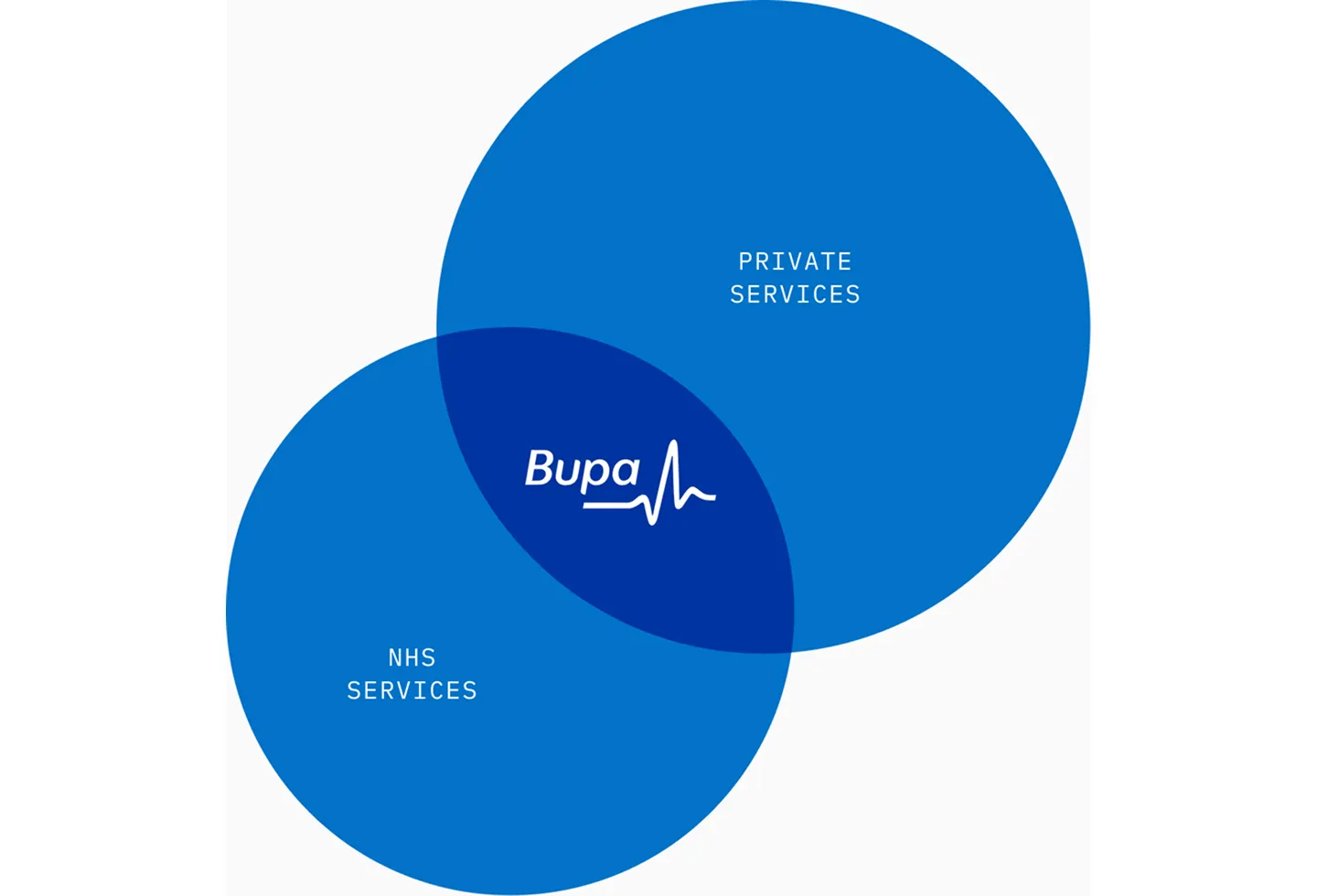
- Our strategic approach
- Gathering data and distilling it down into a prototype for the Bupa board
With Bupa, we needed to tackle these customer challenges head on—both pain points with existing dental offerings, and brand perceptions regarding Bupa and dental treatment in general. We would then develop new hypotheses on how they could be resolved with new solutions.
In this way we split the work into two phases: Exploration, and Iterative prototype Development. The first phase would cover the following: establishing the best customer experience through qualitative anthropological interviews—where feasible or appropriate—and desk research. We would then establish the best technological solution for the prototype.
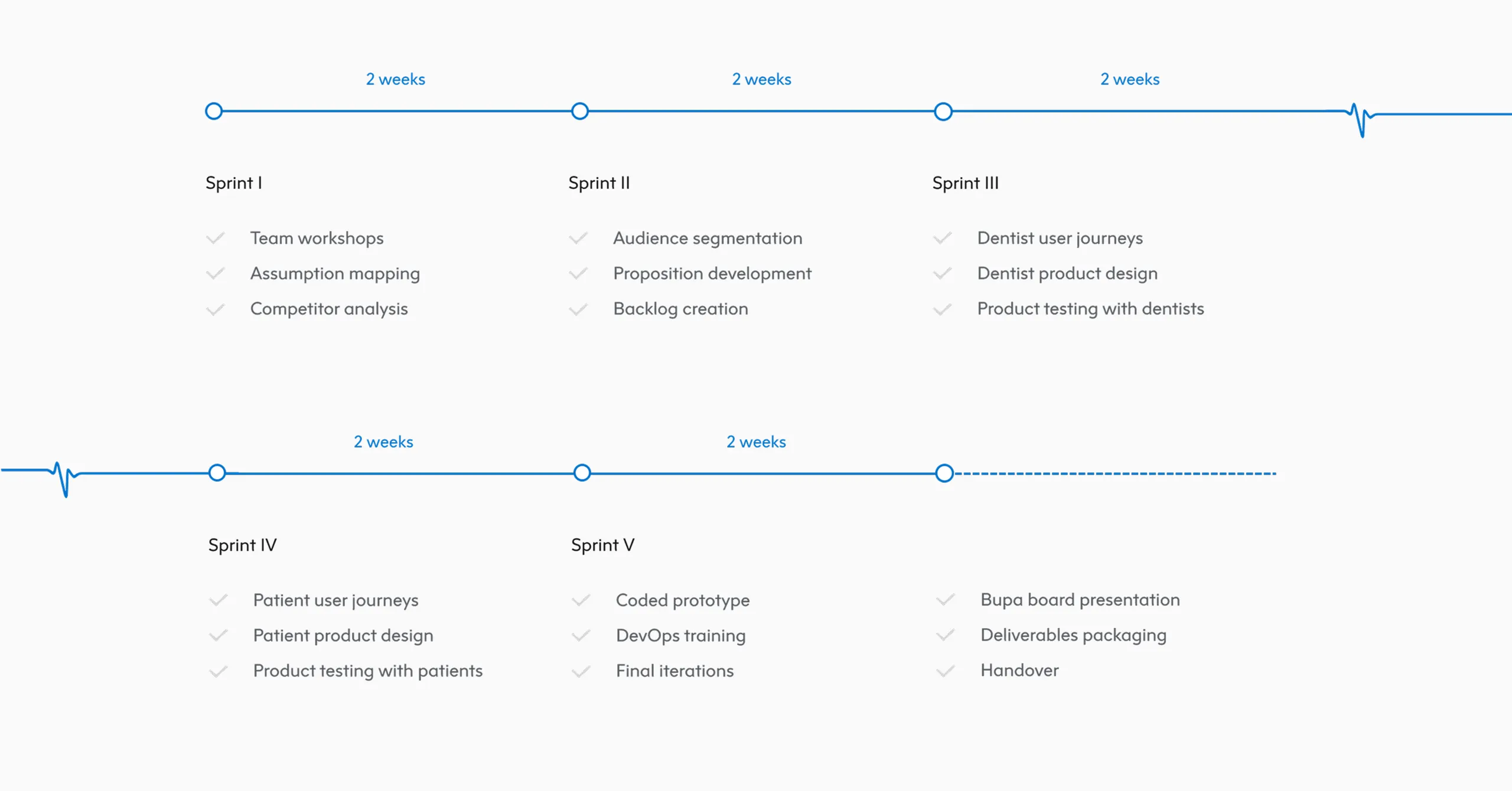
- Phase I: Discovery
As part of the first phase, we organised workshops—for product ideation, brand development, and mapping out the assumptions to be challenged and developing a backlog to investigate. These newly developed assumptions helped us to open up paths, explore the business landscape and gather the building blocks required for developing innovative solutions.
- Phase II: MVP prototype
In the next phase we distilled this work down into viable and testable propositions. From here we developed a definition, strategy and plan for the prototype, and an accompanying process and backlog for delivery of it, to be presented to the Bupa board.

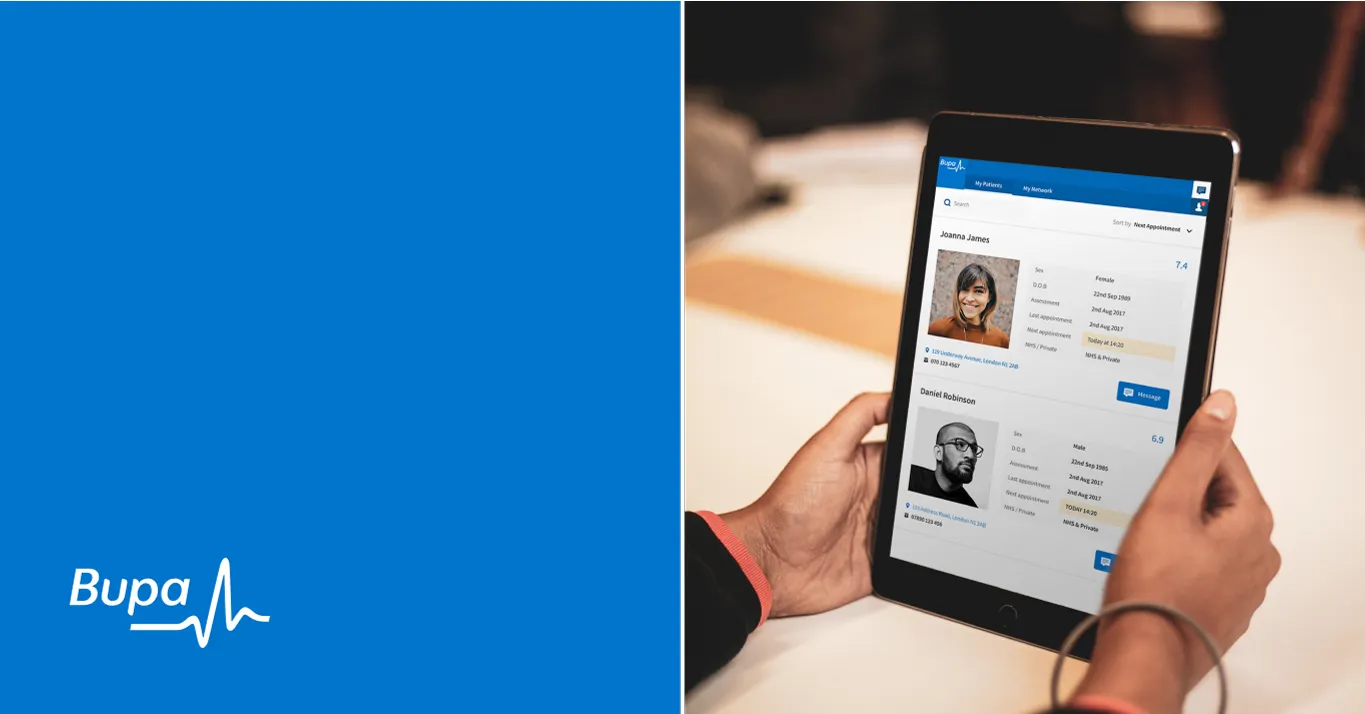
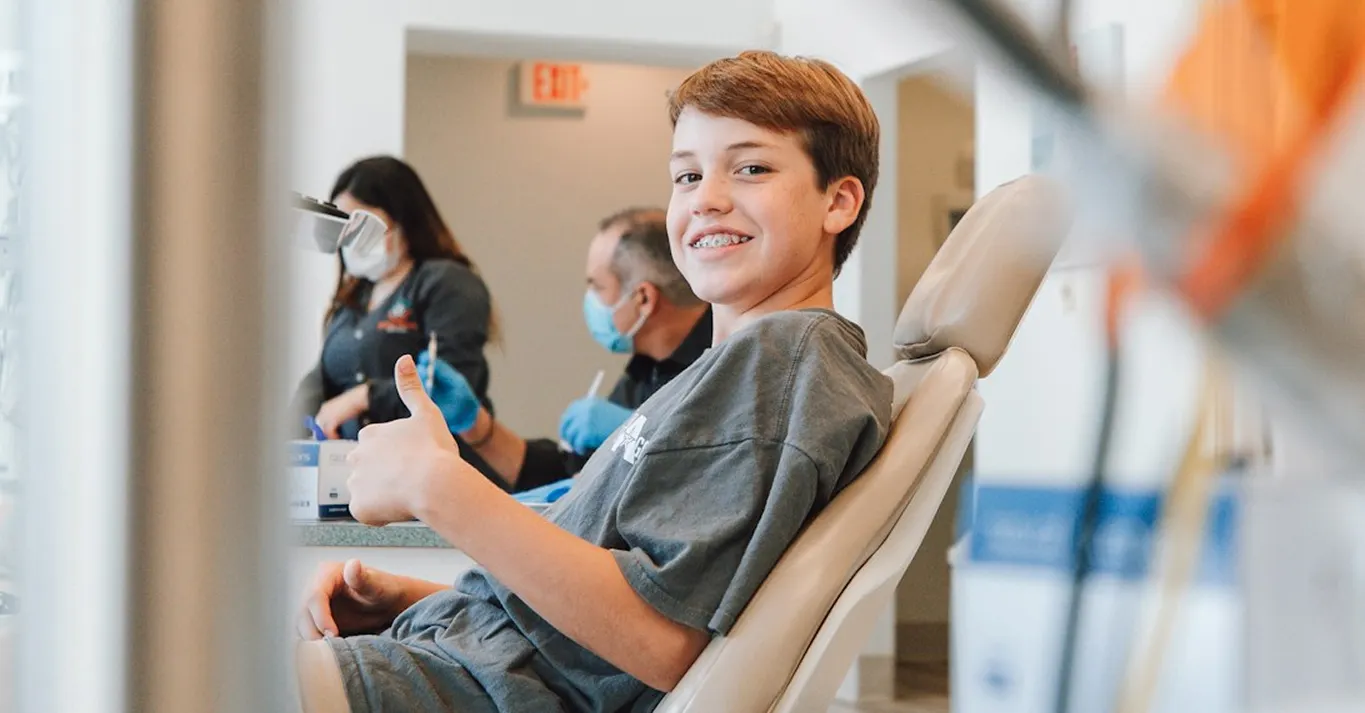
- Our solution
- Working prototypes, supported by a business case
Following the testing, and the insights garnered from real customers, it became clear that there were multiple unrealised opportunities Bupa could harness in their new dental service. We made strategic recommendations to Bupa in the form of multiple proofs of concept, including one working prototype, all of which were backed by real data, that both solved existing problems for customers, and pointed the way for Bupa to unlock new business.
Using elegant digital solutions, and customer-centric methodology, Bupa now had the options to better serve customers in a scalable way across all practices. By combining technology with a deep understanding of the best of the traditional bricks and mortar aspect of the business, we validated the move from the incumbent ‘Practice Management Systems’ to a delightful CX that would also help to drive the desired business uptick.
Prototype 1: Patient mobile app
The app enables patients to find and book appointments, interact with their assessments and treatment plans, and message their dentist directly.
Prototype 2: Dentist tablet app
The tablet app enables dentists to access patient records, upload assessments and treatment plans in a digestible format, and communicate directly with their patients.
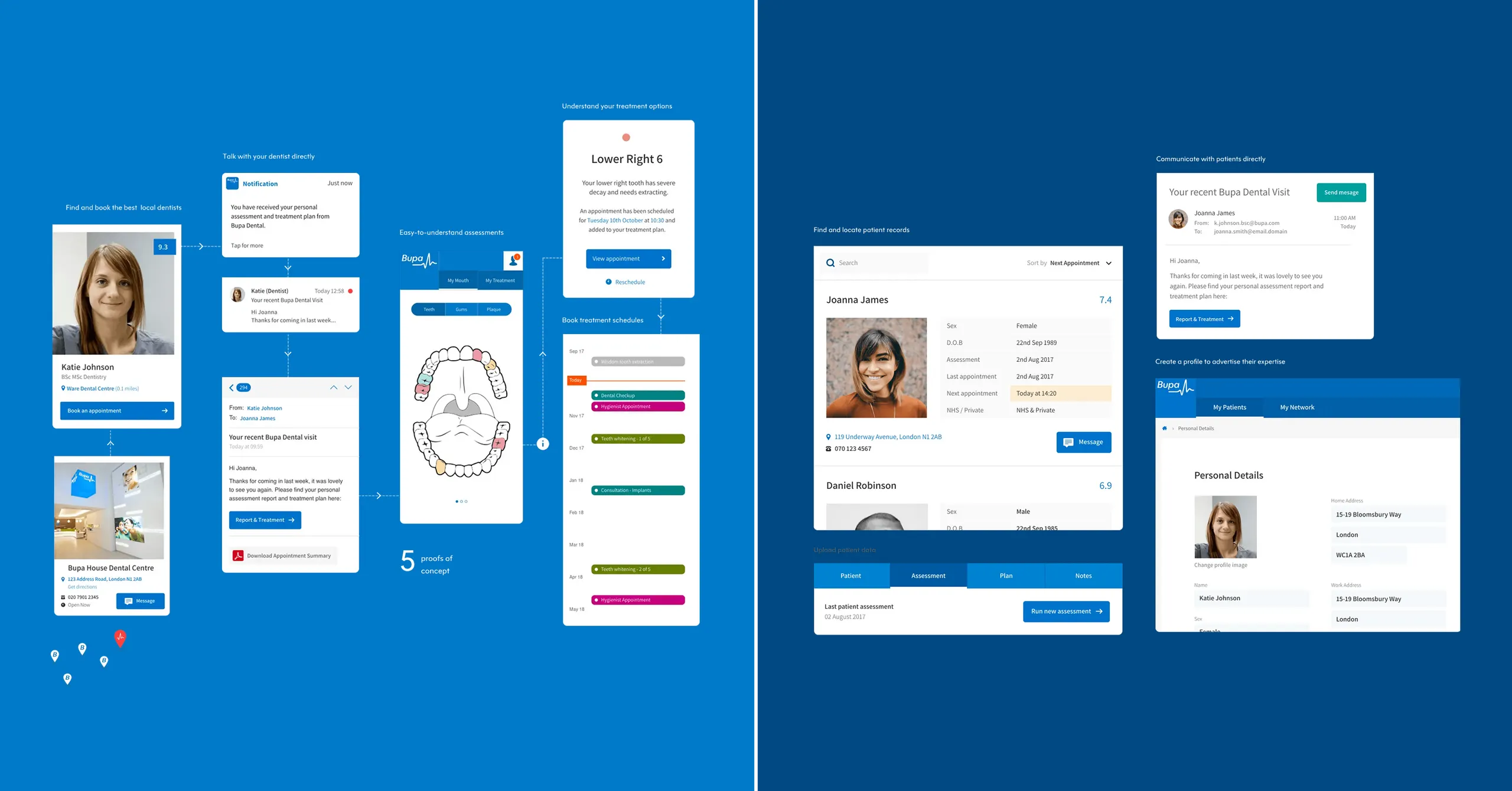
- The outcome
- A route to lower costs, better margins, better process
Building from the initial concept, Elsewhen presented to the Bupa board a solid business case for the way forward, incorporating a validated prototype that brought the vision to life.
The board were pleased with our ability to completely absorb the business challenge in all its complexity, before translating this into something robust and testable, and rapidly developing and challenging assumptions through iteration. They were also impressed with the pace and attention to detail which we brought to the process from beginning to end.
Outcomes
Centralised data
Seamless CX
Functioning prototype
Business case validation
Vendor due diligence
Data strategy
